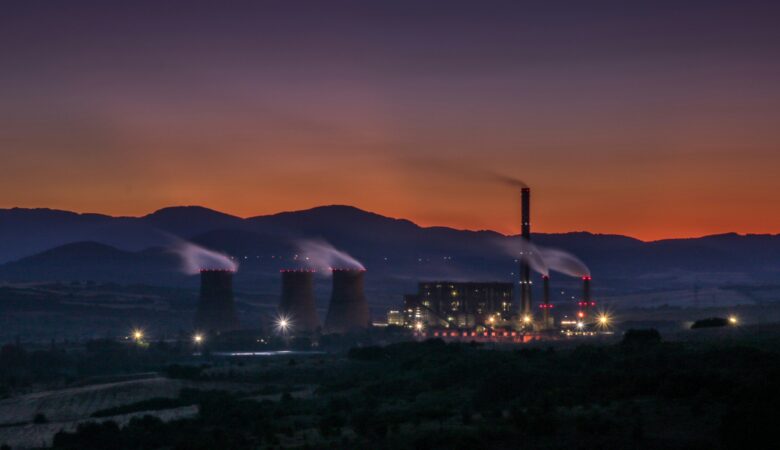As climate change continues to shape global conversations, its impact on energy security has become a pressing concern, particularly for nations like Nigeria. With its vast natural resources and growing energy needs, Nigeria faces unique challenges in balancing its energy security with the environmental threats posed by climate change. Understanding and addressing these challenges is crucial for the country’s sustainable development, and companies like Rhinobay Energy are at the forefront of navigating this complex landscape.
The Intersection of Climate Change and Energy Security
Energy security refers to the reliable availability of energy at an affordable price. In Nigeria, where the economy is heavily reliant on fossil fuels, maintaining energy security while addressing the impacts of climate change is a significant challenge. Climate change affects energy security in multiple ways:
- Impact on Energy Infrastructure: Nigeria’s energy infrastructure, particularly in the oil and gas sectors, is vulnerable to extreme weather events like floods, storms, and rising sea levels. These events can damage critical infrastructure, disrupt supply chains, and lead to energy shortages.
- Variability in Renewable Energy Sources: While renewable energy sources like solar and hydro are crucial for reducing carbon emissions, they are also affected by climate change. For instance, changing rainfall patterns can impact hydroelectric power generation, while increased cloud cover can reduce the efficiency of solar power systems.
- Pressure on Fossil Fuel Resources: Nigeria’s reliance on oil and gas makes it vulnerable to the global push towards decarbonization. As international demand shifts towards cleaner energy sources, Nigeria’s fossil fuel-dependent economy faces long-term risks that could affect energy security.
- Economic Implications: The economic impact of climate change, including damage to agriculture, health, and infrastructure, can reduce the resources available for investment in the energy sector. This can exacerbate existing challenges in ensuring a stable and reliable energy supply.
Rhinobay Energy’s Role in Addressing Climate Challenges
As Nigeria grapples with the dual challenges of energy security and climate change, Rhinobay Energy is playing a pivotal role in developing solutions that are both sustainable and resilient. The company’s approach focuses on enhancing energy infrastructure, promoting renewable energy, and driving innovation to mitigate the impacts of climate change on the energy sector.
1. Building Resilient Energy Infrastructure
Rhinobay Energy recognizes the importance of resilient infrastructure in ensuring energy security in the face of climate change. The company is investing in the modernization and reinforcement of energy infrastructure to withstand extreme weather conditions. This includes upgrading power plants, reinforcing transmission lines, and developing decentralized energy solutions that are less vulnerable to large-scale disruptions.
By prioritizing resilience, Rhinobay Energy is helping to safeguard Nigeria’s energy supply against the growing risks posed by climate change. These efforts not only enhance energy security but also contribute to the country’s overall preparedness for future climate-related challenges.
2. Expanding Renewable Energy Solutions
One of the most effective ways to address both energy security and climate change is by expanding the use of renewable energy sources. Rhinobay Energy is at the forefront of this transition, with significant investments in solar and hydroelectric power projects across Nigeria. These renewable energy solutions are designed to provide reliable and sustainable power to both urban and rural areas, reducing the country’s dependence on fossil fuels.
Rhinobay Energy’s solar initiatives, for example, are particularly well-suited to Nigeria’s climate, leveraging the abundant sunlight to generate clean energy. By expanding access to renewable energy, Rhinobay Energy is helping to mitigate the environmental impact of energy production while enhancing the reliability and affordability of energy for Nigerians.
3. Driving Innovation in Energy Efficiency
Innovation is critical in addressing the challenges of climate change and energy security. Rhinobay Energy is committed to driving innovation in energy efficiency, developing new technologies and practices that reduce energy consumption and lower carbon emissions. This includes the implementation of smart grid technology, energy management systems, and advanced monitoring tools that optimize energy use and minimize waste.
Through these innovations, Rhinobay Energy is not only improving the efficiency of energy production and distribution but also helping consumers to reduce their energy consumption and carbon footprint. This holistic approach to energy efficiency is essential for achieving long-term energy security in a changing climate.
The Path Forward: Balancing Energy Security and Climate Action
Nigeria’s energy future depends on its ability to balance the need for energy security with the imperative of climate action. As climate change continues to impact the country’s energy landscape, it is essential to develop strategies that address both challenges simultaneously.
Rhinobay Energy’s efforts to build resilient infrastructure, expand renewable energy, and drive innovation in energy efficiency provide a blueprint for how Nigeria can navigate this complex terrain. However, achieving energy security in the context of climate change will require more than just the efforts of individual companies. It will require coordinated action from the government, private sector, and international community to develop comprehensive policies and investments that support sustainable energy development.
A Call to Action
The impact of climate change on Nigeria’s energy security is a challenge that cannot be ignored. As the country faces increasingly unpredictable weather patterns, rising temperatures, and other climate-related risks, the need for a resilient and sustainable energy system is more urgent than ever. Rhinobay Energy’s proactive approach to these challenges demonstrates the vital role that the private sector can play in shaping Nigeria’s energy future.
By investing in resilient infrastructure, renewable energy, and innovative technologies, Rhinobay Energy is not only enhancing energy security but also contributing to the global fight against climate change. As Nigeria continues to develop its energy policies and strategies, the lessons and initiatives pioneered by Rhinobay Energy will be crucial in ensuring a secure, sustainable, and prosperous energy future for all Nigerians.















Leave a Reply